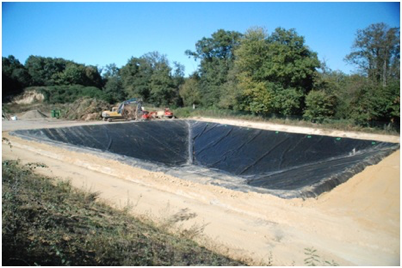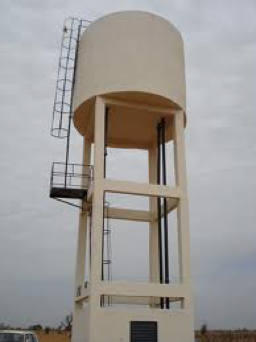By Jacqueline Seeley | Director of Development
Have you ever wondered what you would do if you didn’t have clean drinking water from a faucet in your home?
Well many rural households in the Atlas Mountains live in such conditions. Households are oftentimes not linked to the national water piping network, especially communities which are the hardest to reach (farther up in the mountains).
To adapt, households build on a higher-elevated part of their town or village, community-managed reservoirs to store spring or rain water. These are similar to the water towers you find in towns and villages in the United States, but built in the ground. With these reservoirs, and subsequent piping, households are able to reduce the distance needed to access water and become better equipped to ensure water year-round for household, agricultural and animal consumption.
These reservoirs are from 18-100 meters cubed and can cost a substantial amount of money; often greater than annual capacity of the community. The High Atlas Foundation works with communities, and helps support them in financing and building these reservoirs.
When we consider the importance of water and the life it provides, sustainable water management is essential for populations worldwide. This is why, together with you, we are committed to bringing clean drinking water to households throughout the Kingdom.
As we hope you are aware, the Kingdom of Morocco is hosting the 22nd session of the Conference of the Parties (COP 22) to the UNFCCC in Marrakech this November 2016. It will be an exciting time to come together and commitment to global action and cooperation towards sustainable environmental practices as laid out in the Paris Agreement.
During the COP22, the High Atlas Foundation aims to highlight its sound water resource management, in combination with the organic agriculture value chain model, as a solution to not only poverty, but peace throughout the country and region as well. The COP22 is a COP of action; a global climate action agenda to boost cooperative action among governments, cities, businesses, investors and citizens to reduce emissions and help vulnerable countries adapt to climate impacts. The first universal climate agreement was unanimously adopted at COP21, which took place in December 2015 in Paris. The agreement aims to limit the rise in global temperature "well below 2ºC". This COP22 in Morocco aims to bring all States into action through the mitigation of greenhouse gas emissions and ambitious national commitments.
As part of HAF's commitment to sustainable development and given our expertise in the agroforestry sector, we will be looking to market carbon offsetting initiatives to individuals, companies and states during the COP. Not only will this contribute to our 1 Billion Tree campaign, but also allow entities to uphold their commitments to mitigate greenhouse gas emissions. Global Giving will have a Bonus Day on September 21st, and we at the High Atlas Foundation plan to offer to our Global Giving supporters the opportunity to offset their carbon emissions.
Stay tuned here on Global Giving! You can also sign up for updates from the HAF newsletter for further information!
Project reports on GlobalGiving are posted directly to globalgiving.org by Project Leaders as they are completed, generally every 3-4 months. To protect the integrity of these documents, GlobalGiving does not alter them; therefore you may find some language or formatting issues.
If you donate to this project or have donated to this project, you can receive an email when this project posts a report. You can also subscribe for reports without donating.
Support this important cause by creating a personalized fundraising page.
Start a Fundraiser
